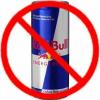yes, using a Spec component levels the playing field and also reduces cost, specially considering current Economic situation. this move to standardize components specially help the lower half of the field as they don't have to built it in-house and diverse resource from the car's development.
but then again, F1 is supposed to be the 'Pinnacle of motorsport'. each individual teams produces unique solution to common problems that shows technical brilliance and distinguishes one team from the other.
the latest component to be standardized is 'Standard side Crash Structure', in and attempt by The FIA to abolish 'side crash structure safety taste' and to 'reduce cost'
it's all 'fine and dandy' but, for me , it's kinda invading the 'Aero department' rather than 'systems department' ... oK let me elaborate ...FIA to abolish side-impact crash test to save money
http://grandprix247....-to-save-money/having collaborated with world champions Red Bull, the FIA has now developed a standard side crash structure that must be fitted to every car from the 2014 season.
The layout and materials for the structure will be identical on every single seater next year, he wrote.
“The new rules will save money and make the cars safer,” said Schmidt.
previously, each team produced their own side impact structure, IIRC ferrari in 2012 re-designed theirs to be incorporated with the bargeboard winglet, while other teams developed other solution, i.e the design of side impact structure has to do with driver protection as well as aerodynamics.

it also dictates the design of the sidepod air inlet too. so, making this component spec, with the help of a rival team is kinda invading the 'what's left of design freedom aera'.
if this trend goes on, we'll soon have a spec tub, spec underfloor, spec DRS ... etc etc all in the name of cost saving.
just to remind we already have
1. Spec ECU
2. Spec tires
3. Spec break materials
so , my question is , where will this Spec-ization of F1 end???
will F1 become a 'Silhouette series' like 'DTM/Indy' with only the FW/RW/sidepods and engine the variable???

































